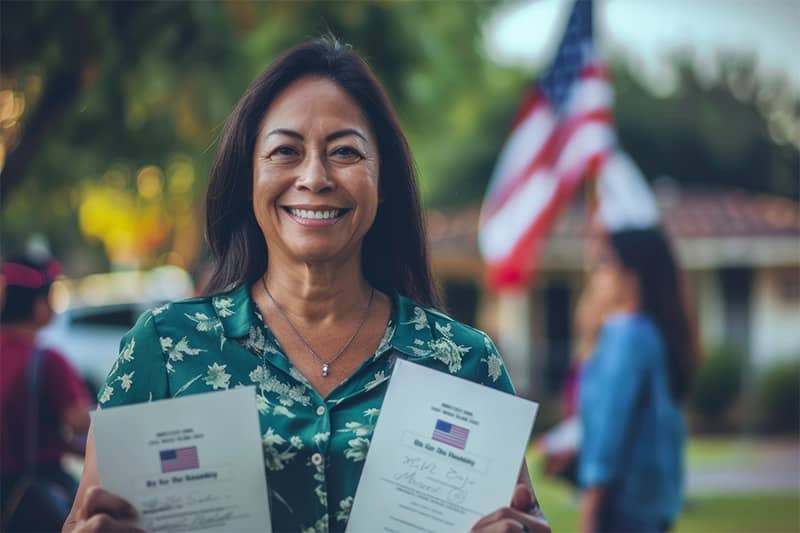Can Naturalized Citizenship Be Revoked? Understanding Denaturalization

Becoming a U.S. citizen through naturalization is a dream come true for many immigrants. It’s a process that requires hard work, dedication, and a commitment to the values and principles of the United States. But what happens if the government discovers that a naturalized citizen obtained their citizenship illegally or through deception? Can their citizenship be revoked?
The answer is yes, in certain circumstances. This process is called denaturalization, and it’s a serious matter that can have life-changing consequences. In this article, we’ll explore what denaturalization is, the grounds for revoking naturalized citizenship, and what you need to know to protect your rights.
What is Denaturalization?
Denaturalization is the legal process of revoking a person’s U.S. citizenship that was obtained through naturalization. This means that the person’s citizenship is taken away, and they revert back to being a non-citizen.
This process only applies to naturalized citizens, not those who acquired citizenship by birth in the United States or through other means. A person who is denaturalized may face deportation, lose their right to vote and hold public office, and may even have difficulty traveling internationally. That’s why it’s crucial to understand the grounds for denaturalization and take steps to protect your citizenship.
Grounds for Denaturalization
There are several grounds upon which a person’s naturalized citizenship can be revoked. The most common reasons include:
Falsification or Concealment of Relevant Facts
One of the most common reasons for denaturalization is when a person falsifies or conceals relevant facts during the naturalization process. This can include lying about one’s criminal history, immigration status, or other important information that could have affected their eligibility for citizenship.
For example, if a person claimed on their naturalization application that they had never been arrested, but it was later discovered that they had a criminal record, this could be grounds for denaturalization.
Membership in Subversive Groups
If a person becomes a member of certain groups within five years of naturalizing, their citizenship can be revoked. These groups include the Communist Party, other totalitarian parties, and terrorist organizations.
Dishonorable Military Discharge
If a person obtains citizenship through military service and then receives a dishonorable discharge before serving honorably for at least five years, their citizenship can be revoked.
The Denaturalization Process
Denaturalization involves multiple government agencies and can take several years to complete.
Step 1: Investigation by USCIS or DOJ
The process usually begins with an investigation by the U.S. Citizenship and Immigration Services (USCIS) or the Department of Justice (DOJ). If they find evidence that a person’s citizenship was obtained illegally or through deception, they may refer the case for prosecution.
Step 2: Determination of Civil or Criminal Proceedings
There are two types of denaturalization proceedings: civil and criminal. Civil denaturalization is more common and involves a lawsuit filed by the U.S. government against the naturalized citizen. Criminal denaturalization, on the other hand, involves criminal charges and can result in fines and imprisonment in addition to loss of citizenship.
Step 3: Further Investigation and Referral
If USCIS or DOJ finds evidence of wrongdoing, they may investigate further and gather additional evidence. If they determine that there is sufficient evidence to move forward with denaturalization, they will refer the case to the appropriate U.S. Attorney’s Office.
Step 4: Filing of Complaint and Notice
The U.S. Attorney’s Office will then file a complaint in federal court and serve notice on the naturalized citizen. The complaint will outline the grounds for denaturalization and the evidence against the person.
Step 5: Hearing and Potential Appeal
The case will then proceed to a hearing, where both sides can present evidence and arguments. If the judge determines that the government has met its burden of proof, the person’s citizenship will be revoked. The person may then have the right to appeal the decision to a higher court.
It’s important to note that in denaturalization proceedings, the burden of proof is on the government. They must provide clear, unequivocal, and convincing evidence that the person’s citizenship was obtained illegally or through deception.
Protecting Your Naturalized Citizenship
If you are a naturalized U.S. citizen and are concerned about the possibility of denaturalization, there are steps you can take to protect yourself.
First and foremost, seek the advice of an experienced immigration attorney as soon as possible. An attorney can help you understand your rights, develop a strong defense strategy, and represent you in court.
Some potential defenses to denaturalization include:
- Arguing that the government has not met its burden of proof
- Showing that any misrepresentations or omissions were not material to the naturalization decision
- Demonstrating that any membership in subversive groups was not knowing or intentional
- Proving that the person has since reformed and is now a productive member of society
It’s also important to remember that even if the government files a complaint against you, it can take years for the case to be resolved. During this time, you have the right to continue living and working in the United States as a citizen.
If you are concerned about your citizenship status or have questions about the denaturalization process, don’t hesitate to reach out to us at the Law Office of Lina Baroudi. Our experienced immigration attorneys have helped countless clients navigate U.S. citizenship law. We can help you understand your rights, explore your options, and develop a strategy to protect your citizenship and your future.
Contact us today for a confidential consultation.



